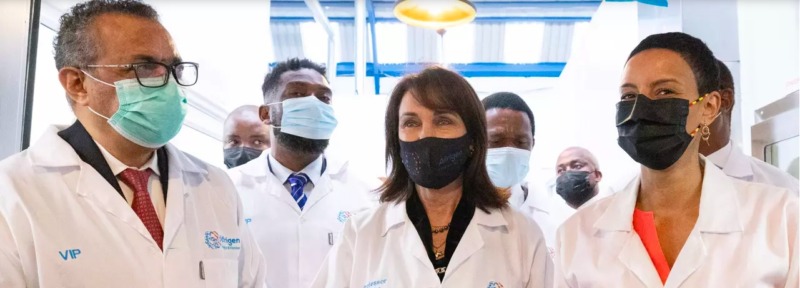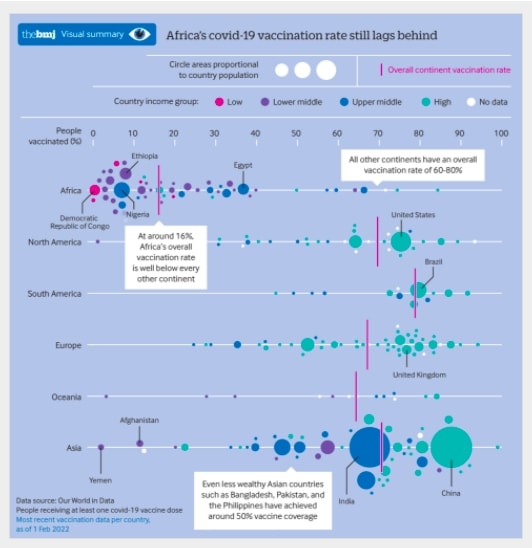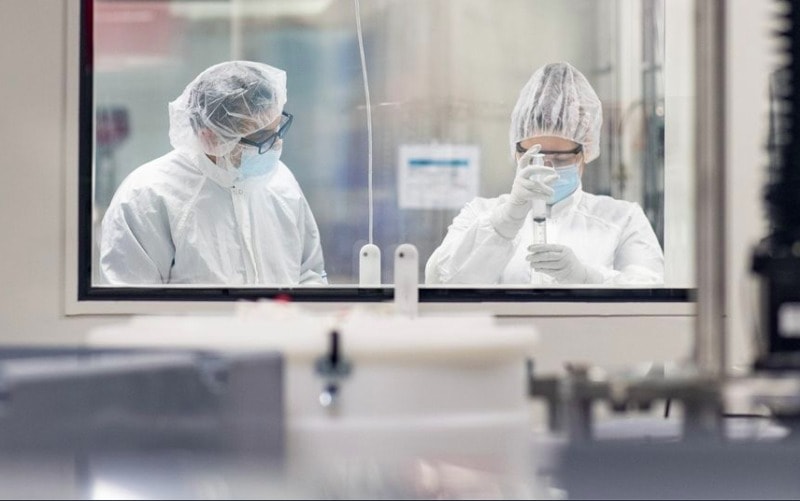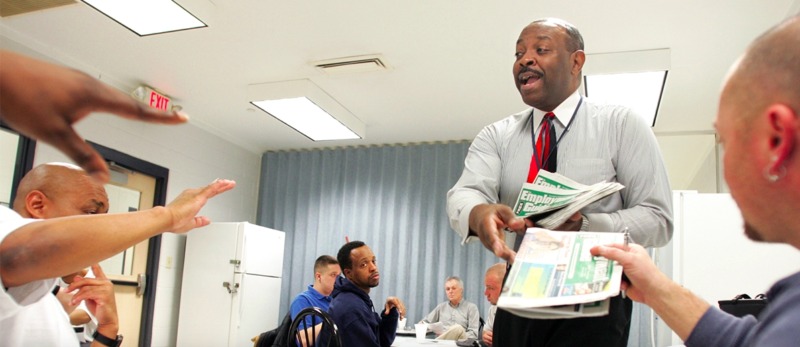
Credit: Benoit Doppagne/Belga Mag/AFP via Getty
The World Health Organization on Wednesday announced it is expanding its mRNA technology transfer efforts to five additional countries as it works to bolster coronavirus vaccine manufacturing in the Global South, an initiative that seeks to overcome persistent obstruction from the pharmaceutical industry and rich nations.
Bangladesh, Indonesia, Pakistan, Serbia, and Vietnam will be the newest recipients of mRNA vaccine technology from the WHO’s hub in Cape Town, South Africa, which has succeeded in creating an mRNA-based coronavirus vaccine modeled after Moderna’s shot—the sequence of which was reverse-engineered by Stanford University scientists and published online last year.
“These countries have seen the damage that reliance on the profit-hungry big pharmaceutical corporations has done.”
The nations will be added to the original list of recipients, which included Egypt, Kenya, Nigeria, Senegal, South Africa, and Tunisia.
“These countries were vetted by a group of experts and proved that they had the capacity […]

A foundation representing the vaccine maker BioNTech has been accused of seeking to undermine the World Health Organization’s initiative to bring covid vaccine manufacturing to the African continent, The BMJ can reveal.
The kENUP Foundation, a consultancy hired by BioNTech, has claimed that WHO’s hub, which is creating a covid-19 mRNA vaccine that African companies can make, is unlikely to be successful and will infringe on patents, documents obtained by The BMJ have shown. Instead, they show kENUP promoting BioNTech’s proposal to ship mRNA factories housed in sea containers from Europe to Africa, initially staffed with BioNTech workers, and a proposed new regulatory pathway to approve the vaccines made in these factories. The novel pathway has been described as paternalistic and unworkable by some experts, as it seems to bypass local regulators.
The move threatens the pan-African venture backed by WHO that seeks to scale up African production of lifesaving vaccines from 1% to 60% by 2040.1 The documents, published for the first time, reveal new details of the proposal from kENUP and BioNTech and their criticism of […]

Credit: Maddie Malhotra/The Wall Street Journal
Healthcare companies that came up with effective Covid-19 vaccines, treatments and tests are seeing a huge financial payoff and are starting to spend their cash, while grappling with questions about whether the growth is sustainable.
Companies including Pfizer Inc. and Moderna Inc. so far have reported at least $79 billion in combined global sales of Covid-19 vaccines and treatments for 2021, according to a Wall Street Journal review of recent earnings reports. Diagnostic sales also have been strong for companies including Abbott Laboratories, which had $7.7 billion in Covid-19 test sales last year.
It’s a market that didn’t exist prior to the pandemic. Many companies attempted to find pandemic countermeasures during 2020 but only some were successful.
Sales from the resulting products kicked into high gear in 2021, strengthening profits while adding to cash reserves.
Some companies are investing the windfalls in employee bonuses, share repurchases, internal research efforts to develop new drugs and vaccines, or pursuing acquisitions of other companies to bolster research and development pipelines.

One in three adults in the United States has been arrested at least once, a strikingly high number compared with many other countries. Now, a new study reveals one of the implications of that figure: Nearly half of unemployed U.S. men have a criminal conviction by age 35, which makes it harder to get a job, according to an analysis of survey data.
The findings suggest having a criminal justice history is pushing many men to the sidelines of the job market, says sociologist Sarah Esther Lageson of Rutgers University, Newark, who was not involved in the study. “I’m not sure that many people understand just how prevalent an arrest is,” she says. “It really shows up [that unemployment] is actually a mass criminalization problem. … Because arrests are so common, they shouldn’t be considered in an employment context at all,” she says.
The work began when Amy Solomon, then head of the Federal Interagency […]










